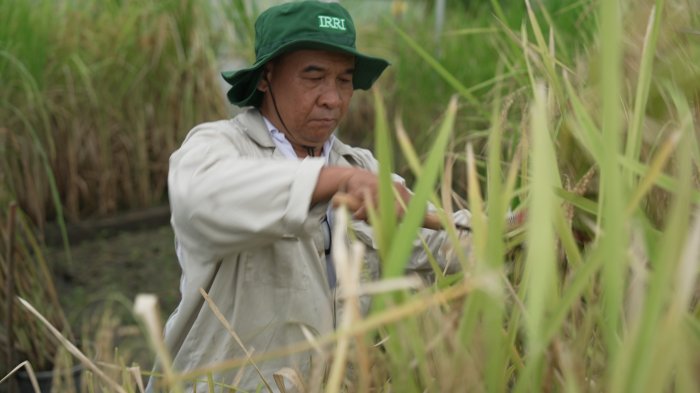Genebankers’ perspectives
Let’s revisit the two genebanks, IITA and IRRI. The next documentary explores what goes on while seeds develop in the field, and how seed scientists and genebank managers decide on the best time to harvest. The video tells the story of a seed’s early life, from flowering to threshing. By tracking this development carefully, the scientists can make a difference to the physiological quality of seeds when they enter the genebank.
As you watch, think about how the genebanks harness seeds’ developmental processes to maximize their longevity in storage.

Transcript: Video 1: from field to genebank
Please use the box below to write how understanding the biological processes helps the IITA and IRRI scientists to ensure the viability of seeds in their genebank. How could these measures be adopted in your own genebank? You should spend up to ten minutes on this. If your reflections on the video raise any questions, please post them on the Forum, where the course moderators will be able to help you.
When you are ready, press 'reveal' to see our comments.
Discussion
If seeds are to maintain their viability during storage, they must first be at the right level of maturity when they arrive at the genebank. Fiona Hay and Olaniyi Oyotomi explain the developmental processes leading up to this optimum level of maturity. It takes a predictable number of days to complete the transformation, so genebankers keep careful records of the number of days after flowering. The parent plant gives visual signs as well. Sola Owoborode, Andres Godwin Sajise, Oladepo Adebowale and Olubiyi Adeyemi demonstrate the clues to look out for. Weather permitting, it is best to wait until the final stage of seed development, during which time seeds dry down to equilibrium with the surrounding air.
Conditions in the field
